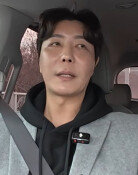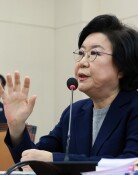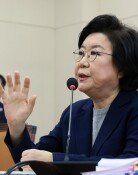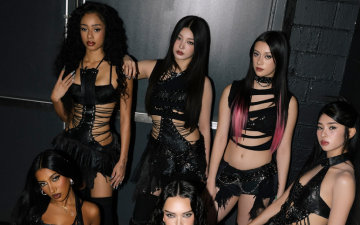Unification Education
The popular Korean childrens song Our Wish was written in 1947 by playwright Ahn Seok-joo, who died in 1950. The music was composed by his son Ahn Byeong-won, who is now 84 and living in Toronto, while Byeong-won was a music major at Seoul National University. The word unification included in the lyrics had been independence in the songs original lyrics. The Education Ministry, however, changed the word and published it in an elementary school textbook. When it comes to unification, what is important is who leads and into which country the united nation will be incorporated. Some argue that what South Korea needs is unification itself without precondition, while neglecting the most important factor of how. The song might have negatively affected the thinking of such people.
What South Korea needs is peaceful unification in line with basic order of freedom and democracy, as stipulated in the Constitution. The governments unification policy, which was based on this logic, was a unification plan through the community of the Korean people. But the administration of the late Kim Dae-jung defined unification in the June 15, 2000, joint declaration while he visited North Korea that year, saying, South Koreas proposal for a united nation and North Koreas proposal for a low-level confederation system has something in common, and (Seoul) will pursue unification accordingly. The Souths proposal for a unified nation, however, was rather Kims personal opinion. Left-leaning governments led by Kim and his late successor Roh Moo-hyun did not bother to urge unification based on freedom and democracy.
Following the inauguration of the Lee Myung-bak government in 2008, a unification plan based on the Constitution was reinstated. In its book Understanding of Unification Issues released in 2008, the Education Center for Unification in Seoul said, For both Koreas to become one in line with a future vision of a united nation based on freedom and democracy is the most desirable form of unification. This phrase itself has problems as well, however. Unification based on freedom and democracy is not an desirable orientation for national unification, but constitutes the only way of unification there is. The direction of unification, which will decide the fate of the 70 million residents of the Korean Peninsula, is not something that can be revised according to the values of successive governments.
The education center published Monday this years edition of the basic unification guidebook, which includes essays on Understanding North Korea, and Guidebook for Unification Education. The book has new phrases that emphasize national security threats, including North Koreas acts of terror and aggression, and content that can help the public better understand the communist country, including trends of its planned economy. To ensure a reduction of massive opportunity costs and handling national security concerns, including North Koreas nuclear threat and the sinking of the naval patrol boat Cheonan, South Korea must recognize unification as a huge burden imposed on its generation.
Editorial Writer Lee Jin-nyong (jinnyong@donga.com)





![하버드 의사가 실천하는 ‘뇌 노화 늦추는 6가지 습관’ [노화설계]](https://dimg.donga.com/c/138/175/90/1/wps/NEWS/IMAGE/2026/01/22/133210626.3.jpg)

